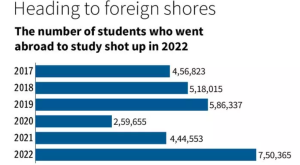Eligibility Requirements
Scholarship providers typically evaluate applicants based on several key factors. These factors usually include academic records, GPA, test scores, and sometimes relevant work experience. A strong academic record, demonstrating consistent high performance, is often a primary requirement. A high GPA, typically above a certain threshold, showcases academic excellence and commitment to rigorous study.
Examples of Eligibility Requirements
- A minimum GPA of 3.5 on a 4.0 scale is a common requirement for many scholarships.
- Scores from standardized tests like the GRE or GMAT, depending on the program and the scholarship, may be required.
- Some scholarships may require applicants to have a specific academic background, such as a bachelor’s degree in a related field.
- Previous relevant work experience may be considered as an advantage in certain scholarships.
Necessary Documents for Application
A comprehensive application package is essential for a successful scholarship application. This package typically includes transcripts, letters of recommendation, and personal statements. Supporting documents like proof of financial need, if applicable, might also be necessary. The specific documents required will vary depending on the individual scholarship.
- Official transcripts from all previous institutions of higher education are generally required.
- Letters of recommendation from professors or mentors who can attest to the applicant’s academic abilities and potential are crucial.
- A well-written personal statement is vital for conveying the applicant’s motivations, goals, and aspirations, highlighting their suitability for the program.
- Proof of financial need, if applicable, might be necessary for scholarships that specifically target students with financial constraints.
Application Process and Deadlines
The application process for scholarships involves several steps, and adherence to deadlines is critical. Scholarship applications typically require submitting a comprehensive application form, providing supporting documents, and adhering to the stipulated deadlines.
- Applicants should carefully review the application guidelines and requirements for each scholarship.
- Submitting all required documents by the specified deadline is crucial for consideration.
- Following the application instructions precisely will prevent errors and increase the chances of a successful application.
- Deadlines vary considerably across different scholarships, so it is essential to check each scholarship’s specific instructions.
Comparing and Contrasting Different Scholarship Requirements
Different scholarships often have unique requirements, which need to be carefully examined. Some scholarships prioritize academic achievement, while others emphasize financial need or a specific field of study. Careful evaluation of these nuances is vital for a focused application strategy.
| Scholarship | Primary Focus | Specific Requirements |
|---|---|---|
| Scholarship A | Academic Excellence | High GPA, strong letters of recommendation |
| Scholarship B | Financial Need | Proof of financial need, demonstrated financial hardship |
| Scholarship C | Specific Field of Study | Relevant coursework, research experience in the field |
Scholarship Descriptions
Finding the right scholarship for your master’s program in Europe can be a game-changer. This section details ten scholarships, outlining their specifics, benefits, and requirements to help you make an informed decision.
Scholarship Details Table
This table provides a quick overview of the ten scholarships, including their awarding institutions, deadlines, and brief descriptions.
| Scholarship Name | Awarding Institution | Application Deadline | Description |
|---|---|---|---|
| Erasmus Mundus Scholarships | Erasmus+ Programme | October 2024 | Provides funding for master’s programs in various fields across Europe. |
| DAAD Scholarships | German Academic Exchange Service (DAAD) | February 2025 | Offers financial aid for German universities and other partner institutions. |
| Marie Skłodowska-Curie Actions | European Commission | June 2024 | Supports researchers and scientists pursuing master’s studies in Europe. |
| Fondation Sciences et Technologies | Fondation Sciences et Technologies | March 2025 | Focuses on engineering and technology master’s programs. |
| CIES Master Scholarships | CIES | September 2024 | Supports students in business and management master’s programs. |
| Erasmus+ Jean Monnet Scholarships | Erasmus+ Programme | November 2024 | Specifically targets master’s programs focused on European studies and policies. |
| Fulbright Scholarships | Fulbright Commission | April 2025 | Offers grants for students pursuing master’s degrees in various fields. |
| Bilateral Scholarships | Specific National Agencies | Vary by country | Scholarships offered by individual European countries for specific fields. |
| Universitas 21 Scholarships | Universitas 21 | August 2024 | Aids students pursuing master’s programs in various fields at partner universities. |
| National Scholarships | National Government Agencies | Vary by country | Scholarships offered by specific countries for master’s programs. |
Scholarship Details and Benefits
Each scholarship offers different levels of financial support and varying eligibility criteria. Careful review of each scholarship’s terms is crucial.
- Erasmus Mundus Scholarships: This program provides a comprehensive package often covering tuition fees, living expenses, and travel. Successful applicants usually demonstrate strong academic records and relevant experience. A good example of a successful applicant profile is one with a high GPA, research experience, and involvement in relevant extracurricular activities. The amount of financial support varies depending on the specific program.



